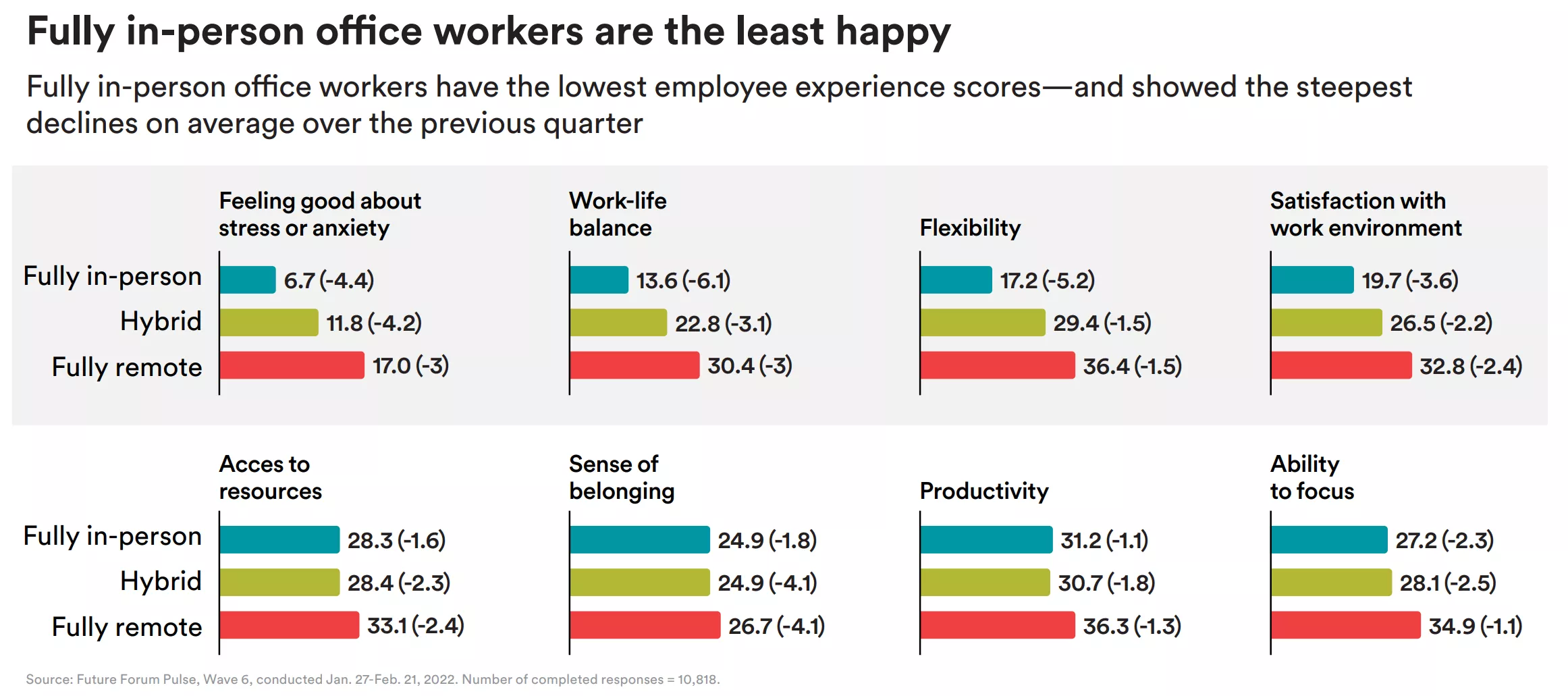
If your company is introducing a strict return-to-office (RTO) mandate, it could be worth looking at how the company is doing overall. Though management lines usually center around the benefits of in-office working, like improved company culture and relationships, and better collaboration and communication, many workers disagree.
At Dell, where a remote working policy has successfully been in place for over a decade, and the company has had a place on the Best Place to Work for Disability Equality Index since 2018, change is afoot. According to its new RTO policy, hybrid staff are required to be in an approved office location at least 39 days a quarter, and while working remotely is still an option, there is a significant drawback.
A recent memo to staff stated: "For remote team members, it is important to understand the trade-offs: Career advancement, including applying to new roles in the company, will require a team member to reclassify as hybrid onsite."
Cue employee outrage.
Insiders say this move disproportionately affects women and employees with disabilities, while employees are speculating that this kind of micromanagement is a way to reduce headcount. Across online forums, Dell staff are talking about finding new roles, and of course, if they leave of their own accord, the company won't have to pay severance.
Click to enlarge.
It comes on the back of the company laying off 5% of its workforce last year, and while investors in Dell have seen strong returns recently, the world economy is still not abundant, and tech layoffs continue.
If the company you work for has introduced a punitive RTO mandate, or there's one on the cards soon, and it doesn't work for you, it's time to look for something new. Visit the TechSpot Job Board where you can search by country, state or city location, and most importantly, there's also a dropdown option for 'Remote USA'. Here are three companies hiring remotely right now.
DigitalOcean
It makes sense that one of the leading cloud service providers is remote-friendly, and business is doing well. With a new CEO Paddy Srinivasan on board, and revenue growth of 20% in 2023, DigitalOcean appeals to workers who want to help serve small businesses, without relying on services from tech titans Amazon Web Services and Microsoft.
As a "developer cloud," it's particularly of interest to engineers at all levels, and recently the company has advertised for multiple remote roles, including software engineers in machine configuration, a manager in software engineering, plus senior engineers for AI/ML and network core datapath. Take a look at active roles here.
OpenText
Founded in 1991, OpenText began as a project from University of Waterloo in Canada. Fast-forward three decades, and the organization has over 120K customers, 25K team members, 120 offices, and colleagues in over 43 countries. Safe to say, this is a company with scale and ambition.
Regularly hiring into remote roles, recently advertised jobs include a senior manager in courseware development, fortify lead consultant, cloud deal desk manager, cybersecurity account manager, infrastructure architect, and the list goes on. Handsome salaries are also on offer. See roles here.
Netflix
Netflix needs little introduction: with 222 million paid members in over 190 countries, the company has come a long way since its origins as a postal DVD rental service. As a multi-platform entertainment service, and with a big push into gaming this year, this is an organization that is scaling rapidly in multiple areas.
Recent remote positions advertised include ads for android software engineers, senior content designer for ads, engineering manager, technical artists, infrastructure planners and data visualization engineer, and the list goes on. See Netflix jobs here.
Find your next role today via the TechSpot Job Board
Are return-to-office mandates actually masquerading as "quiet firing"?
